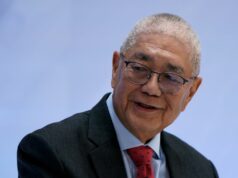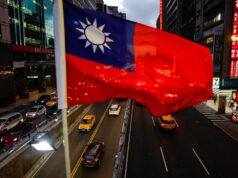DoE to recommend nuclear power as a ‘long-term’ energy option
NUCLEAR ENERGY is a “long-term energy option” for the Philippines, Energy Secretary Alfonso G. Cusi said on Thursday ahead of his department’s formal recommendation to the President on the use of power from the energy source.
“Based on the technical assessment, the use of nuclear technologies, including nuclear energy, is seen as a long-term energy option for the country. The possible inclusion of nuclear power in the current energy mix is consistent with the national policy towards a technology-neutral energy sector,” Mr. Cusi said in a statement on Thursday.
The Department of Energy’s (DoE) position was outlined in a news release after Mr. Cusi and other officials of the agency met with International Atomic Energy Agency (IAEA) headed by Director General Yukiya Amano who visited the DoE head office in Taguig City.
Mr. Cusi said the bilateral meeting “comes at an opportune time as the DoE will submit its recommendations to President Rodrigo Duterte on the country’s position on the civilian use of nuclear technology following a series of technical cooperation agreements with IAEA.”
The DoE said its recommendation includes the results of the energy planning studies implemented under IAEA’s technical cooperation projects, namely: PHI 2011 Assessing the Development of a Nuclear Power Program in the Philippines for 2016-2017 and PHI 2016 003 Development of Nuclear Infrastructure in the Philippines, Phase II for 2018-2019.
It said the meeting also discussed the scope of IAEA’s work and its role in assisting member-states in attaining the UN Sustainable Development Goals, as well as the use of nuclear science and technology for socioeconomic development.
Aside from the technical cooperation, the DoE said it had presented its activities on the drafting of a national position.
“The report touched on the possible cooperation in other areas, such as human resource development, nuclear safety, legal and regulatory framework, international standards, cooperation with the international community, stakeholders involvement and challenges which includes closure on the Bataan Nuclear Power Plant issue,” the DoE said.
“In addressing the queries on the other uses of nuclear technology, IAEA Director General Amano discussed the wide ranging applications of nuclear science in the areas of health and medicine, agriculture, water treatment and sanitation and the environment. He categorically stated that the commitments made in COP 21 may not be achieved without the use of nuclear technology,” it added.
The department said the IAEA has taken the opportunity to invite the Philippines in the upcoming Nuclear Science Applications Ministerial Conference, which will be held in the third quarter of the year.
Mr. Amano also announced that a Nuclear Energy and Climate Change Conference will be one of the side events in the next conference of the United Nations Framework Convention on Climate Change, the DoE said.
It added that Mr. Cusi requested the IAEA to assist the Philippines in providing courses and training for Philippine schools on nuclear science for energy, medicine, agriculture, environment and climate change. — Victor V. Saulon



